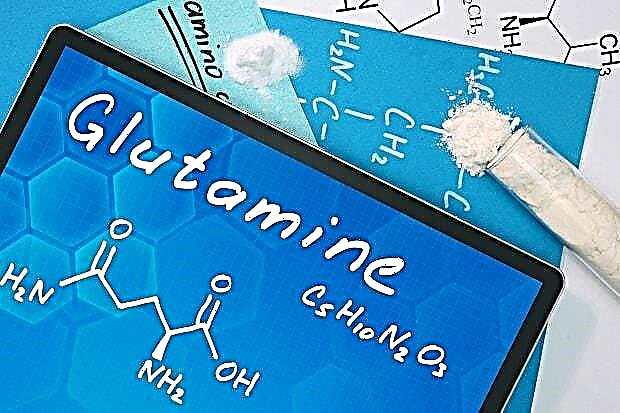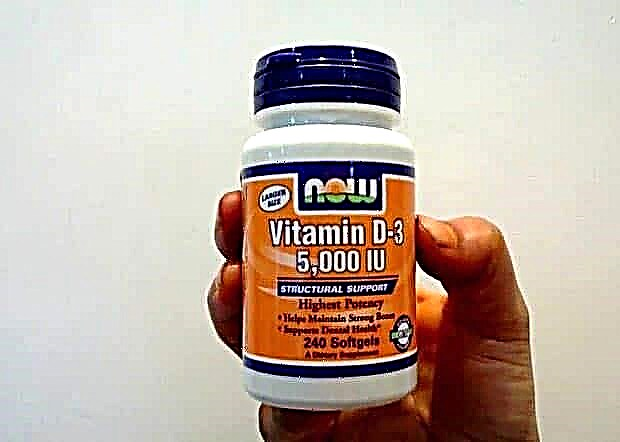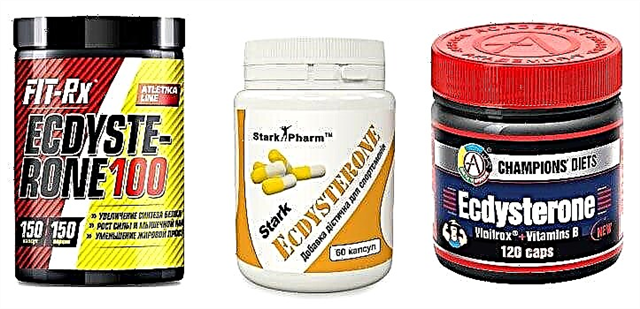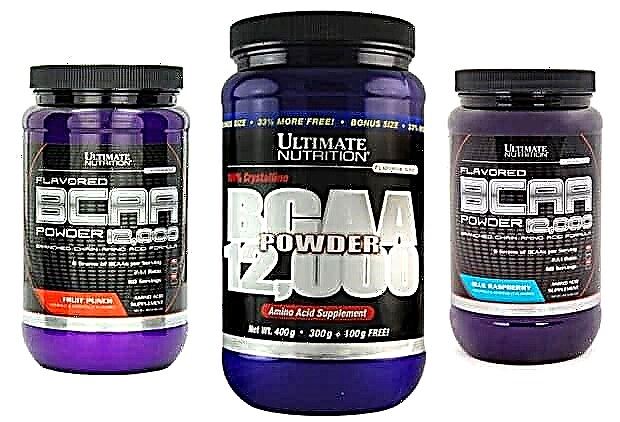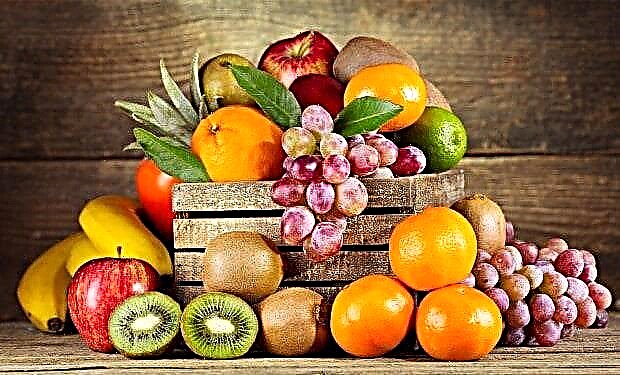Amino acids
1K 0 23.06.2019 (last revised: 24.08.2019)
Phenylalanine is an essential amino acid (hereinafter AA). The human body is unable to produce it on its own. Therefore, the supply of AK from the outside must be constant and in sufficient volumes. In some cases, additional use of dietary supplements with this additive is required.
Phenylalanine properties
Phenylalanine is found in many proteins and is also a precursor to another amino acid, tyrosine. With the help of tyrosine, the pigment melanin is synthesized, which determines the color of the skin and provides protection from ultraviolet rays. Also, with the help of tyrosine, a number of biologically active substances are synthesized, for example, adrenaline, dopamine and norepinephrine, thyroid hormones (source - Wikipedia). These substances play an important role in the regulation of the human emotional background.
Phenylalanine should be used under strict medical supervision. This AK is shown mainly in obese people with the aim of suppressing hunger (English source - the scientific journal Journal of the International Society of Sports Nutrition, 2017).
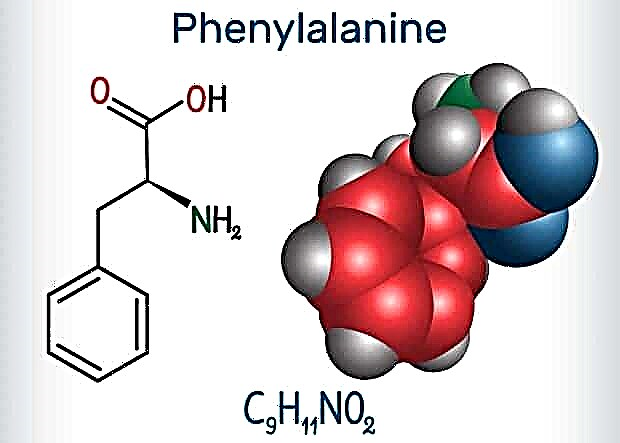
© bacsica - stock.adobe.com
Doses and effectiveness
For therapeutic purposes, phenylalanine and DL-phenylalanine can be prescribed at a dosage of 0.35-2.25 g / day. L-phenylalanine 0.5-1.5 g / day The dose depends on the specific pathology.
The effectiveness of AK has been proven in the treatment of vitiligo, since it serves to regulate the production of melanin (source in English - the scientific journal Macedonian Journal of Medical Sciences, 2018). Phenylalanine supplementation can be used in the treatment of depression to improve the synthesis of neurotransmitters that regulate mood.
Taking phenylalanine is effective in the following cases:
- in order to create a feeling of satiety (for obese patients);
- vitiligo therapy (ensures normal melanin synthesis);
- depression therapy (ensuring the synthesis of adrenaline, norepinephrine and dopamine).
Types of phenylalanine
There are several types of the AK in question:
- DL-phenylalanine: combination of types L and D. Highly effective in the fight against the manifestations of vitiligo. Promotes the treatment of obesity, provides a feeling of fullness.
- L-Phenylalanine: Natural Form. Provides the production of neurotransmitters. Helps fight fatigue and memory disorders.
- D-phenylalanine: a laboratory synthesized form used in cases of deficiency of a natural type of amino acid. Demonstrates antidepressant efficacy, stimulates the production of neurotransmitters, and fights nervous disorders.
Natural sources of phenylalanine
AK is widely represented in the composition of common food products of animal and plant origin. This versatility ensures that amino acids are delivered naturally every day.
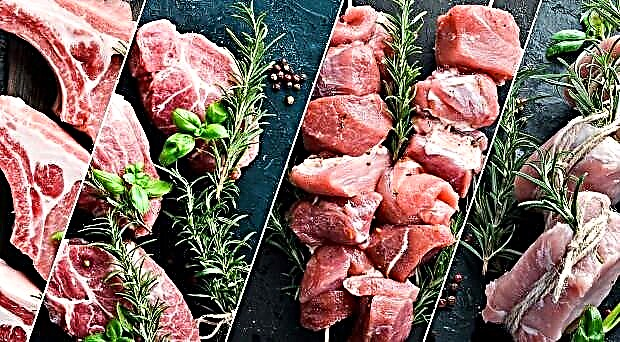
© Yaruniv-Studio - stock.adobe.com
Examples of products containing phenylalanine.
| Product | F / a content (mg / 100 g) |
| Loin (pork) | 1,24 |
| Veal loin | 1,26 |
| Turkey | 1,22 |
| Chops (pork) | 1,14 |
| Chicken fillet (breast) | 1,23 |
| Leg of lamb | 1,15 |
| Lamb loin | 1,02 |
| Chops (lamb) | 0,88 |
| Ham (lean) | 0,96 |
| Swordfish | 0,99 |
| Perch (sea) | 0,97 |
| Cod fish | 0,69 |
| Tuna meat | 0,91 |
| Salmon fish | 0,77 |
| Chicken eggs | 0,68 |
| Lamb peas (chickpeas) | 1,03 |
| Beans | 1,15 |
| Lentils | 1,38 |
| Legumes | 0,23 |
| Parmesan cheese | 1,92 |
| Emmental cheese | 1,43 |
| Mozzarella cheese" | 0,52 |
| Corn | 0,46 |
| Oil | 1,33 |
Side effects, oversaturation and deficiency
The value of phenylalanine for the human body can hardly be overestimated. Because its deficiency threatens with extensive metabolic disorders. The latter can be expressed:
- memory impairment;
- decreased appetite;
- chronic fatigue;
- falling into a daze.
Excessive accumulation of this AK is no less dangerous. There is a serious illness called phenylketonuria. Pathology is caused by the absence of an important enzyme (phenylalanine hydroxylase) or its small production, which does not cover the costs of the body for splitting. Phenylalanine accumulates as a result of which the body may not have time to break down this AA into the necessary elements and use it in the construction of proteins.
With all the usefulness of an amino acid, taking dietary supplements with its inclusion has very specific contraindications:
- arterial hypertension: an excess of AA leads to a further increase in blood pressure;
- schizophrenia: AK affects the NS, the symptoms of the disease are aggravated;
- mental problems: an overdose of AK leads to an imbalance in the synthesis of neurotransmitters;
- interactions with other drugs: phenylalanine shows an effect on antipsychotics and drugs for hypertension;
- side effects (nausea, headache, exacerbation of gastritis): conditions are caused by the effects of dietary supplements.
The use of phenylalanine by pregnant women is impractical if there is no direct indication for this. If no metabolic disorders have been identified, the intake of AA from external sources is sufficient for the normal functioning of the body.
Overview of dietary supplements with phenylalanine
| Additive name | Release form | price, rub. |
| Doctor's Best, D-Phenylalanine | 500 mg, 60 capsules | 1000-1800 |
| Source Naturals, L-Phenylalanine | 500 mg, 100 tablets | 600-900 |
| NOW, L-Phenylalanine | 500 mg, 120 capsules | 1100-1300 |
Conclusion: Why Phenylalanine Balance Is Vital
So, phenylalanine is irreplaceable, as proven by laboratory studies. It takes part in a number of basic metabolic processes. Therefore, you must constantly eat your daily diet.
When should you take additional doses of AK in the form of dietary supplements? The answer is simple. If there is a real need for this, confirmed by medical tests. In other cases, it is highly not recommended to exceed the daily (habitual) dose!


